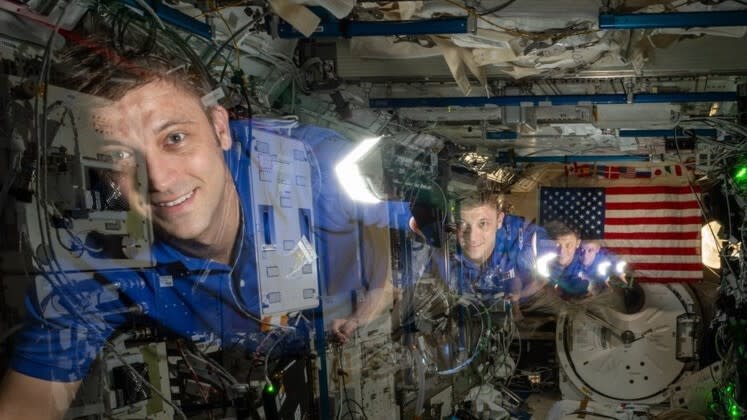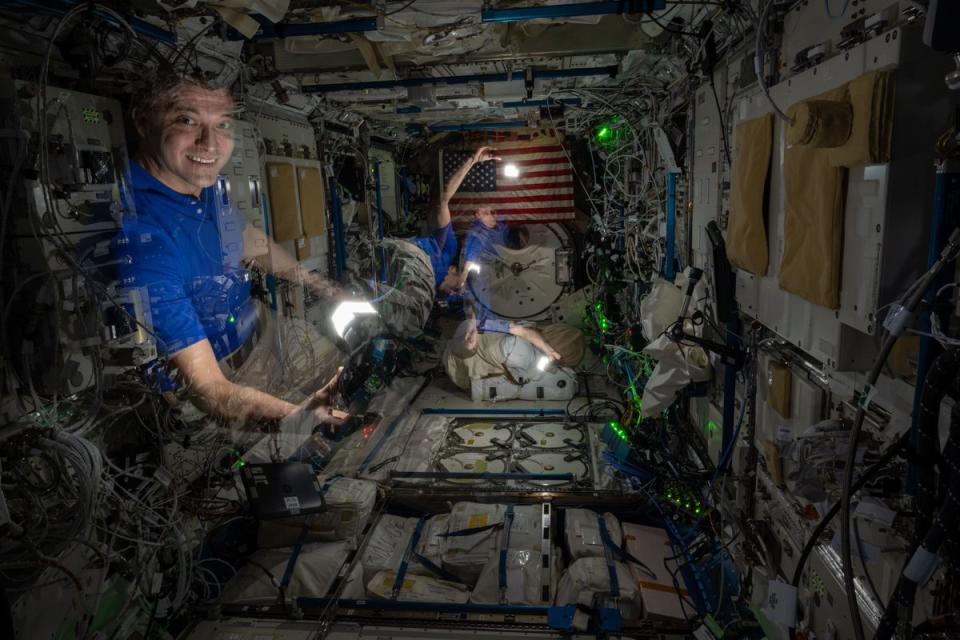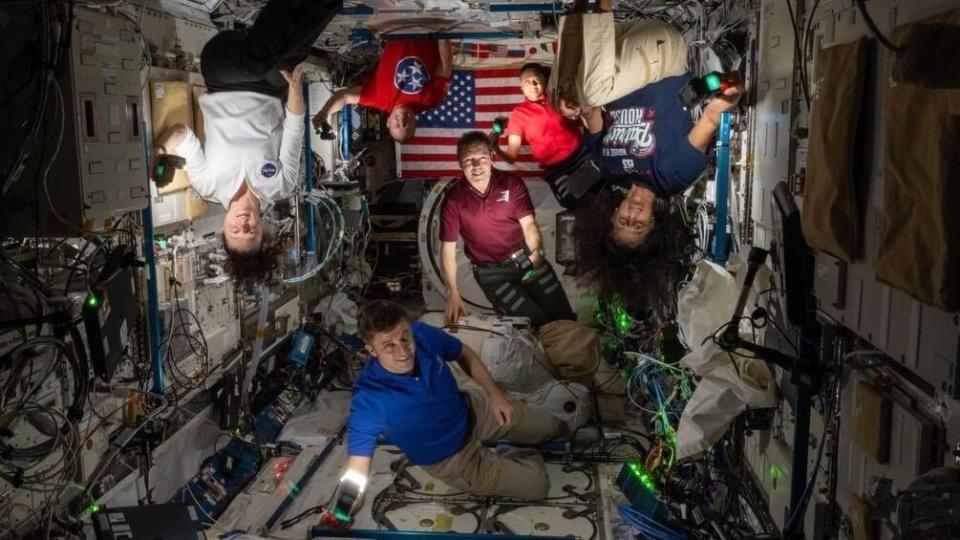'No fireworks on ISS,' so astronauts experiment with 'light painting' instead (photos)

- Oops!Something went wrong.Please try again later.
With no fireworks allowed on the space station, NASA astronauts improvised with camera flashes to celebrate Independence Day.
International Space Station (ISS) astronaut Matthew Dominick played around with "light painting" — a long exposure in a dark room that illuminates a subject with a light source — during Expedition 71's time off to celebrate the Fourth of July.
"No fireworks on ISS so we used camera flashes instead. Experimented with 'light painting' today," Dominick wrote on X, formerly Twitter.
Dominick has already been practicing image time-lapses on the orbiting complex in between his regular duties, capturing stunning pictures of Earth and the space station in motion. But for the U.S. holiday, the NASA astronaut mounted the Stars and Stripes to the back of the Japanese Kibo module and played around with interior exposures. Then he posted the results on social media.
Two of the photos show Dominick skittering across Kibo in different ways — one with him zooming through the shot like a superhero, and another one catching him in more of a space tumble. The grin on his face is infectious.
Related: NASA astronauts send Fourth of July message to Earth from ISS (video)

Dominick described how the time-lapses were staged: "Turned off the lights. Manually actuated our own flashes. Ambient light only from computers and experiment LEDs." He also added some photography stats, for aspiring space photographers: 15-second exposures, f22, 24mm, ISO 500.
For one photo, he got much of the Expedition 71 long-duration crew and the two Boeing Starliner astronauts (in space for a shorter mission) to join him in Kibo. Each astronaut used their own light source to illuminate themselves in the semi-darkness of the research facility.
The group was instructed to "fire your own flash at will, inside the 15 second exposure of course," Dominick explained in a reply about how they staged it.

RELATED STORIES:
— Ax-3 astronaut snaps dizzying photo of ISS's jam-packed interior
— Sprites from space! Astronaut photographs rare red lightning phenomenon from ISS
While Dominick is using his spare time to play with photos in fun, all astronauts are trained in orbital photography to assist with vital Earth observations during their time in space.
"Astronauts often take beautiful pictures of the aurora borealis, city lights at night, and the horizon, but they can also photograph natural hazards such as volcanic eruptions and wildfires from space," NASA officials wrote in 2021. (More recently, for example, Expedition 71 has been capturing pictures of Hurricane Beryl from space.)
"In fact, astronaut photography can play a crucial role in helping scientists and decision makers monitor hazards in near real-time," the NASA posting added. "While most traditional satellites only take photos looking straight down at the Earth, astronauts can capture images from a variety of perspectives."

